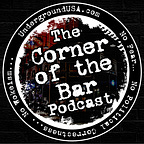There is a quiet conquest taking place in the Western world, one fueled by dogmatic edict on the one hand and our culture’s neo-Marxian decay on the other. It’s particularly evident in Europe, but in many places in the United States, it is taking root. And unless we recognize what is happening, our way of life will be irreparably damaged.
For over a decade, I ran a 501c3 non-profit that educated on the external threats facing our country—specifically, Islamofascism and progressivism—and our nation’s love affair with constitutional illiteracy. I spoke internationally about this “perfect storm,” warning that if left unchecked, this storm would encompass the globe. Today, we are living with the results of those warnings being ignored.
Islam, historically a religion of conquest, is executing a soft jihad on the West, not through swords but through strategic territorial acquisition, higher fertility rates, and exploitation of the West’s progressive-instilled nihilistic cultural decay. This insidious approach, driven by Islamofascist ambitions to establish a global caliphate by edict in the Quran, leverages demographic trends and ideological voids to reshape Western societies. Without decisive action, the West risks surrendering its cultural identity—and its sovereignty—to an ideology that thrives where purpose falters.
Islam’s rapid territorial expansion in its first century, from Arabia to Spain and India, was no accident. The Rashidun and Umayyad caliphs, fueled by religious zeal and the promise of divine reward, absorbed Byzantine and Persian territories through military campaigns. The Quran’s Surah 9:29, urging Muslims to fight non-believers until they submit or pay tribute, and Hadith glorifying martyrdom provided theological justification for conquest.
The caliphate system, merging religious and political authority, incentivized expansion with wealth, slaves, and converts, while the jizya tax pressured non-Muslims to convert or live as second-class citizens.
This martial ethos persisted through history. The Ottoman Empire’s sieges of Constantinople in 1453 and Vienna in 1683 reflected a lustful vision of universal Islamic rule. While critics point to Christianity’s Crusades, Islam’s sustained emphasis on military jihad and its rapid global spread distinguish it from the long-passed conquest-oriented actions of Christianity. Today, this legacy, which includes the ongoing employment of terrorism, informs Islamist strategies, adapting conquest to modern contexts through demographic and cultural means.
Meanwhile, Western culture, increasingly unmoored by progressive nihilism, offers fertile ground for Islamist ambitions. Postmodern skepticism, prioritizing subjective experience over objective truth, has eroded traditional sources of meaning—religion, family, and national identity. Pew Research (2022) reveals 78% of Americans distrust government and media, reflecting a broader disillusionment. The rejection of religious frameworks as oppressive leaves individuals adrift, seeking purpose in consumerism or digital escapism.
Progressive ideals, rooted in Marxism, like equity of outcome over equality of opportunity, often mask cynicism. The deconstruction of institutions—evident in movements questioning gender norms or moral absolutes—creates a worldview where nothing is sacred. Popular media, glorifying irony and detachment, and activism, spiraling into performative outrage, amplify this emptiness. Nietzsche’s warning of a world without value resonates as individuals, obsessed with “authenticity,” become trapped in narcissistic self-absorption, detached from communal standards.
This nihilism breeds despair. The focus on systemic flaws, while rarely valid, frames life as an endless power struggle, leaving unparented and unmentored youth vulnerable to ideologies offering pseudo-certainty. Islam, with its rigid totalitarian framework and perceived sense of community, fills this void for some, particularly when secular individualism fails to provide enduring significance.
Because of this, Islamofascists are exploiting the West’s cultural weaknesses through a soft jihad of demographic dominance. Immigration from Muslim-majority countries, often unchecked due to lenient immigration and open border policies, has swelled Muslim populations in Europe and North America. Studies project Muslims could reach 20% of Europe’s population by 2050, driven by fertility rates of 2.6 children per Muslim woman compared to 1.6 for non-Muslims. In cities like Malmö, Sweden, and parts of London and Paris, high Muslim birth rates and migration have transformed neighborhoods, creating enclaves resistant to integration and “no-go zones.”
While a portion of Muslim immigrants seek economic opportunity, Islamofascist factions target and manipulate these communities. Sharia councils, radical mosques, and separatist organizations promote parallel societies, undermining Western values and encouraging non-assimilation.
For example, in the UK, over 80 sharia courts operate, handling disputes outside secular law, often enforcing patriarchal norms. Radical preachers, like Anjem Choudary, exploit disaffected youth, channeling their alienation into extremism. The 2017 Manchester Arena bombing, perpetrated by a British-born Muslim radicalized locally, underscores this threat.
Islamofascists also seek to capitalize on Western legal protections. Free speech and religious freedom, noble in principle, are abused to shield extremist and incendiary rhetoric. In Germany, Salafist groups distribute Qurans in public squares, framing it as outreach while actually recruiting for radical causes. This calculated strategy erodes cultural cohesion, as Islamofascists present their ideology as a superior alternative to the West’s fractured identity.
The West’s nihilistic tendencies amplify this soft jihad. Declining faith—only 20% of Europeans attend religious services regularly—weakens resistance to Islam’s aggressive worldview. Eroding family structures, with birth rates below replacement levels in countries like Germany (1.5 children per woman), contrast with Muslim communities’ robust growth. National pride, vilified as xenophobic, leaves societies hesitant to defend their values. In France, debates over banning the burqa sparked accusations of Islamophobia, paralyzing efforts to protect established cultural and secular norms.
Secular individualism, while empowering, lacks the rigid structural framework Islam enforces on its devout. Disaffected youth, alienated by a culture glorifying irony, are prime targets for radicalization. The Islamic State’s online propaganda, slickly produced and promising a purpose through jihad, false as this promise may be, lured thousands of Western Muslims to Syria. Even moderate Islam, with its emphasis on submission and community, appeals to those craving structure in a relativistic world.
To halt this dangerous advance, the West must act decisively to counter this soft jihad. Immigration policies must prioritize cultural compatibility, vetting entrants for ideological alignment with Western values. Integration must be assertively cultivated, dismantling parallel institutions like sharia courts and banning foreign funding for mosques. Radical networks, exploiting free speech to advance jihad through terrorism and national subversion, must face stricter scrutiny—hate preachers should be disenfranchised or prosecuted when appropriate under the law, not platformed.
Equally critical is the West’s rejection of nihilism. The West must revive civic pride, family values, and a shared moral vision rooted in its Judeo-Christian heritage (America First, anyone?). Educational curricula should pivot away from the condemnation of Western history and, instead, emphasize Western achievements, countering narratives of guilt, blame, and decline. Policies supporting higher native birth rates, like Hungary’s family incentives, could help in balancing demographic trends.
Islam’s soft jihad, through territorial acquisition and higher fertility rates, exploits the West’s nihilistic decay to advance a Quran-mandated global caliphate. Without an abrupt pivot away from this status quo, the West risks a future where Islamist and Islamofascist influence dominates, not through conquest through violent jihad but through demographic and ideological triumph.
By rediscovering its purpose—through cultural renewal and resolute policies—the West can halt this quiet invasion; the soft jihad of conquest. Failure to act invites a future where the call to prayer drowns out church bells, and sharia supplants secular law.
The choice is clear: revive or submit.
Then, when we return, our segment on America’s Third Watch, broadcast nationally from our flagship station WGUL AM860 & FM93.7 in Tampa, Florida.
In Closing…
To wrap things up, politics and the events shaping our world aren’t just distant happenings; they influence our everyday lives, the neighborhoods we live in, and the deeper spirit of our nation. We’re not bystanders in all of this—we’re the keepers of the truth, the ones holding the line for the ideals that give America its spark. Choosing to stay informed isn’t optional; it’s a serious responsibility, a deliberate stand against the blur of misinformation and spin. It’s on us to cut through the static, challenge power, and keep this Republic strong and wild and free.
But it goes beyond just knowing what’s going on. Truth is a bridge. It’s what sparks those honest, sometimes gritty conversations with your family, your friends, maybe even a neighbor you barely know. And it’s in those moments, in those small exchanges, that we start to rediscover something we’re constantly told is lost: our unity. The cracks begin to heal when we choose to listen, when we find our shared values tucked beneath the noise. That connection? That’s where our true power lives. It’s bigger than votes and elections—it’s the beating heart of what this country stands for.
So seek the truth. Share it. Talk about it. Let it light up your conversations, your relationships, and your daily choices. Let it fuel your fire for this messy, beautiful experiment we call America. Because at the end of the day, we’re not just citizens of this country—we’re family. We’re in this together. We’re a wild, diverse patchwork of people bound by a shared belief in liberty, fairness, and the idea that we can always do better, aiming for that ever-elusive “more perfect union.”
Let’s keep pushing for it. The power is already in our hands.

















